With soft wings and slow flight, the tawny owl is a stealthy hunter that isn’t fussy about its diet, happy to live on what is most abundant

Double-glazing may help to keep us warm but it is a shame that it also cuts out the noise of tawny owls. They are very early breeders so it is important to make sure that a territory is clearly defined before the winter starts. Resident pairs are chasing out young interlopers and new breeders will need to find a mate and carve out a good territory before winter starts to bite, if they are to maximise their chances of raising chicks in 2018.
The number of eggs laid depends upon the female being well fed in January and February. Then the number of chicks that fledge successfully will be dependent upon both parents being able to supply owlets with a plentiful supply of food in the spring. If the flow of food slows down, older owlets may well eat their younger siblings, as has been documented by the BBC’s Springwatch camera team.
Acute hearing
Winter is both good and bad for nocturnal owls. Like our other resident species, surviving snowy and icy weather will be a challenge, but for tawny owls there is actually more hunting time in the winter than in the summer. When not sitting in a favourite tree and hooting — or making the “kee-vik” call if it is a female — a tawny owl silently hunts for mammals and birds. Soft wings, slow flight, big eyes and acute hearing all help this stealthy hunter to pounce on small animals as they gather food or pluck roosting birds from branches while they sleep.
This story is from the {{IssueName}} edition of {{MagazineName}}.
Start your 7-day Magzter GOLD free trial to access thousands of curated premium stories, and 9,000+ magazines and newspapers.
Already a subscriber ? Sign In
This story is from the {{IssueName}} edition of {{MagazineName}}.
Start your 7-day Magzter GOLD free trial to access thousands of curated premium stories, and 9,000+ magazines and newspapers.
Already a subscriber? Sign In
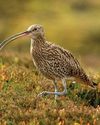
United we stand
Following United Utilities' decision to end grouse shooting on its land, Lindsay Waddell asks what will happen if we ignore our vital moors

Serious matters
An old gamebook prompts a contemplation on punt-gunning
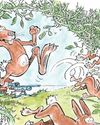
They're not always as easy as they seem
While coneys of the furry variety don't pose a problem for Blue Zulu, he's left frustrated once again by bolting bunnies of the clay sort
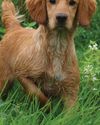
Debutant gundogs
There's lots to think about when it comes to making the decision about when to introduce your dog to shooting

When the going gets rough
Al Gabriel returns to the West London Shooting School to brush up on his rough shooting technique

The Field Guide To British Deer - BDS 60th Anniversary Edition
In this excerpt from the 60th anniversary edition of the BDS's Field Guide To British Deer, Charles Smith-Jones considers the noise they make
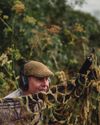
A step too far?
Simon Garnham wonders whether a new dog, a new gun and two different fields in need of protection might have been asking too much for one afternoon's work
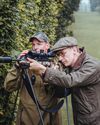
Two bucks before breakfast
A journey from old South London to rural Hertfordshire to stalk muntjac suggests that the two aren't as far detached as they might seem
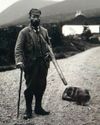
Stalking Diary
Stalkers can be a sentimental bunch, and they often carry a huge attachment to their hill

Gamekeeper
Alan Edwards believes unique, private experiences can help keepers become more competent and passionate custodians of the countryside